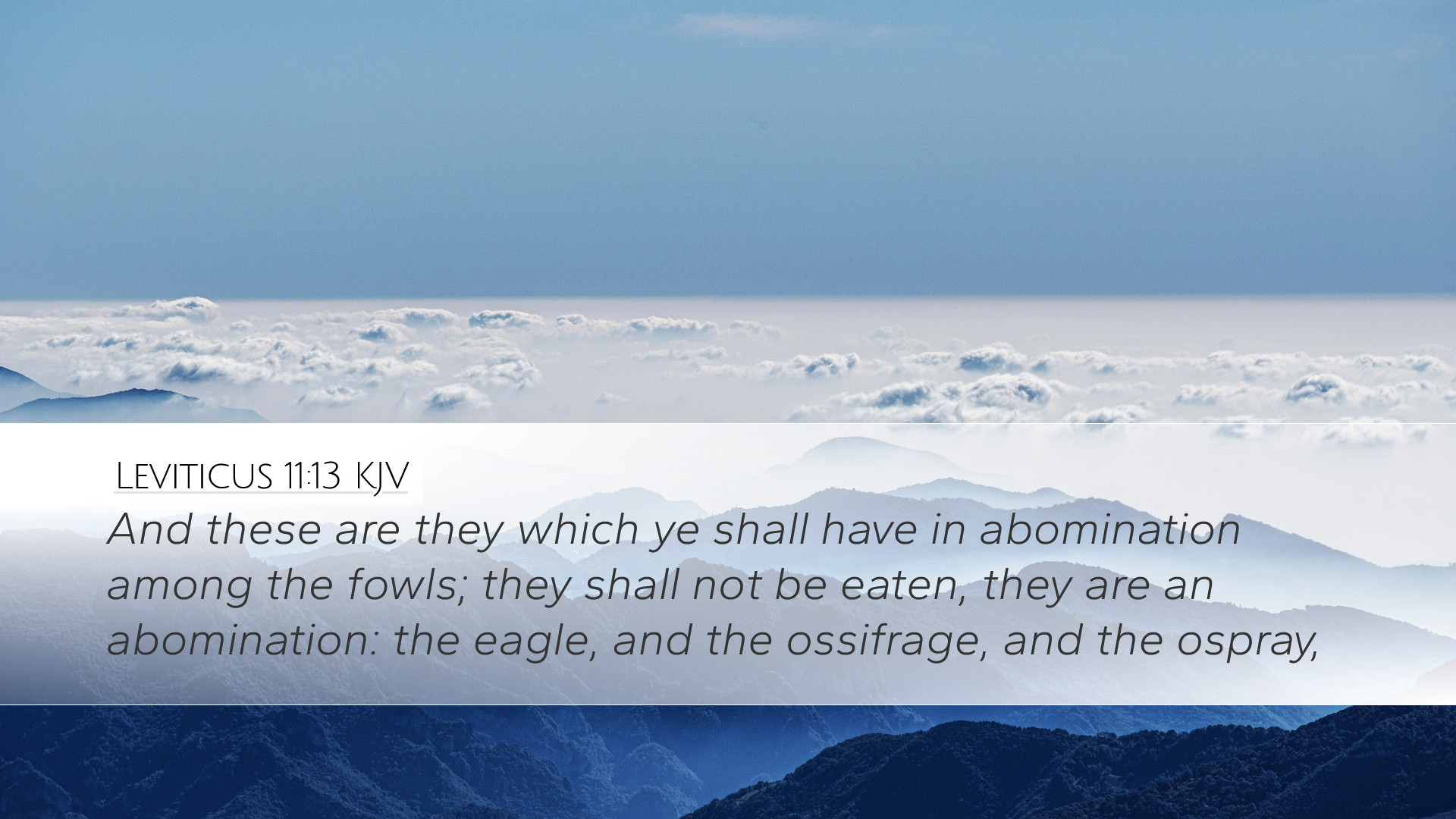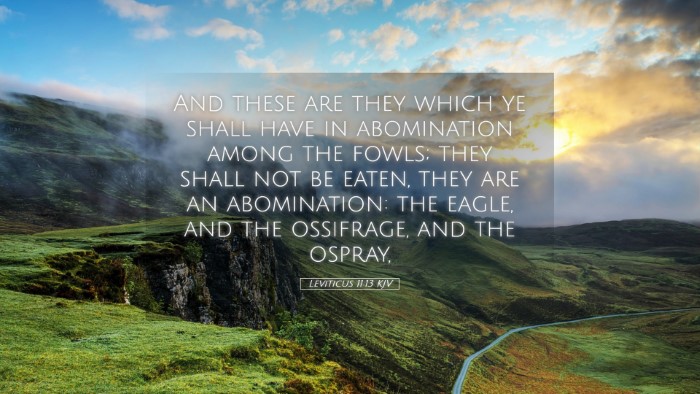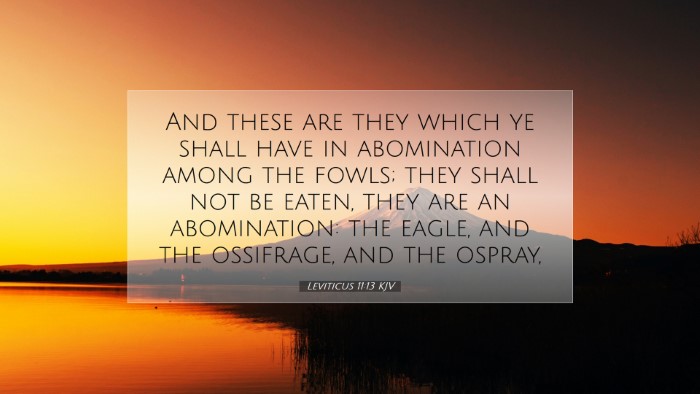Leviticus 11:13 Commentary
Verse Overview: Leviticus 11:13 states, "And these are they which ye shall have in abomination among the fowls; they shall not be eaten, they are an abomination: the eagle, and the ossifrage, and the ospray." This verse belongs to a larger section in Leviticus where God outlines dietary laws for the Israelites, specifically focusing on creatures that are deemed unclean.
Contextual Background
The chapter is part of a broader legislative framework provided to the Israelites after their exodus from Egypt. It sets forth dietary regulations that aim not only at physical health but also at ceremonial cleanliness and holiness:
- Historical Setting: The Israelites, having witnessed God's deliverance from slavery, were instructed on how to live as a chosen people.
- The Purpose of Dietary Laws: To distinguish the holy people of Israel from the surrounding nations, reinforcing their identity and promoting obedience to God.
Insights from Commentaries
Matthew Henry's Commentary
Matthew Henry elucidates the importance of distinguishing between clean and unclean animals. He notes that the birds named, such as the eagle and the osprey, are predators and scavengers, representative of the traits God disapproves of in the Israelite community:
- Henry suggests that the prohibition serves to teach the Israelites about the nature of holiness, which includes a separation from practices and behaviors viewed as unclean.
- He emphasizes the spiritual lesson of avoiding anything that promotes destruction or harm, drawing a parallel between physical dietary practices and spiritual integrity.
Albert Barnes' Notes
Albert Barnes highlights the rationale behind the specific mentions of birds considered unclean. He points out:
- Each bird listed commonly preys on other animals, embodying traits contrary to the desired characteristics of God’s people.
- Barnes notes that God's laws were designed for the moral and spiritual betterment of the Israelites, reinforcing the notion of living in harmony with divine principles.
Adam Clarke's Commentary
Adam Clarke takes a more detailed look at the implications of the classifications presented in Leviticus 11:
- Clarke remarks on the significance of these laws in shaping societal norms regarding health and hygiene, thereby fostering a culture of respect for life.
- He draws a connection between the consumption of clean and unclean animals and the broader theme of purity, urging readers to contemplate the spiritual ramifications of their choices.
Theological Implications
The insights gained from this commentary lend themselves to various theological reflections:
- Holiness and Separation: The call to abstain from certain creatures mirrors the overarching theme of holiness in the life of an individual and the community.
- God’s Sovereignty: The delineation of clean and unclean underscores God's authority over creation and His desire for a faithful relationship with His people.
- Moral Lessons: The characteristics of the unclean animals provoke reflection regarding what qualities should be avoided in life and conduct.
Conclusion
Leviticus 11:13 serves as a poignant reminder of the significance of obedience to God’s commands, emphasizing dietary laws as more than mere restrictions; they are instructional for spiritual health and communal well-being. Through the insights of esteemed commentators like Henry, Barnes, and Clarke, the reader is encouraged to deeply consider how these ancient directives resonate within contemporary faith practice.
Reflection Questions
- How can the lessons from Leviticus 11:13 impact modern Christian living?
- What principles of holiness can we apply from these dietary laws to our everyday choices?
- In what ways can we foster a deeper understanding of God’s character through His commandments?


